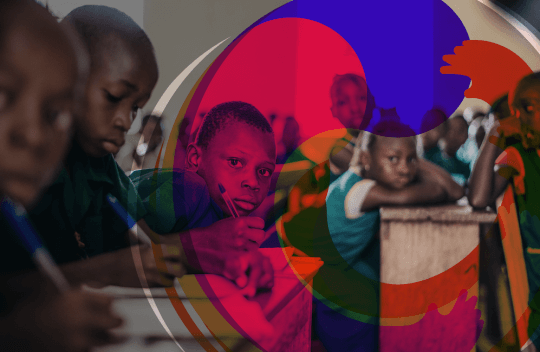LOCAL LETTER
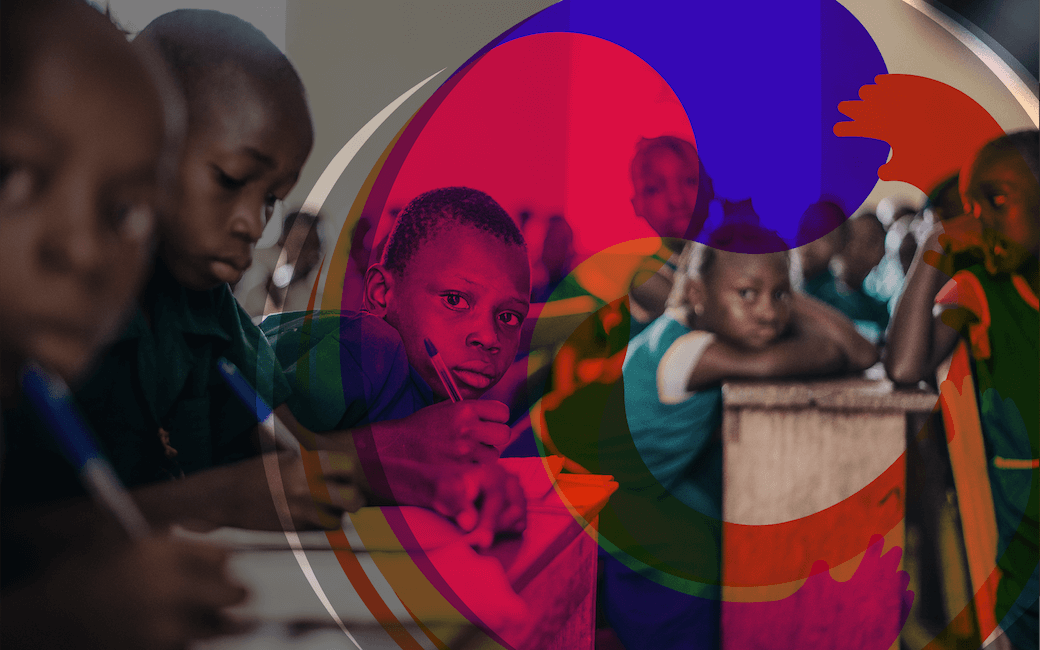

We wanted to create a platform that nurtures talents all around the world. “SPIN”, the industry first global crowd-funding service and its future.
SPIN
For the passionate and those of social nature who wish to keep local traditions alive.
2020.09.01
A new service has been born into this world.
Spin is provided by Freewill Inc. It is a crowdfunding service that supports all kinds of “talents” with a focus on stories that appeal to people’s hearts and minds.
The impetus for the creation of “SPIN” came when Toshi Asaba, CEO of Freewill, saw during his childhood the shocking level of poverty in certain parts of the world through the cathode ray tube of a television set.
Feeling the unspeakable contradiction of the fact that Japan can live in abundance while other countries are suffering, he decided to change the world through business. After more than 20 years of investing his own money and effort, Asaba’s dream of “changing the world through business”has finally arrived at the starting line.
Spin is already involved in a variety of projects both in Japan and abroad, including a satoyama conservation project in Iide-Town, Yamagata Prefecture, a whale shark conservation project in Southeast Asia, and two projects to combat poverty in Bangladesh and Myanmar, which have been exacerbated by COVID-19.
In this interview, we spoke with Asaba, the founder of Spin, about his thoughts on the project and his vision for the future through Spin.

We did not want to create a “crowdfunding” service.
“We didn’t want to create a crowdfunding service,” was the first thing Asaba said to me shortly after I started the interview.
When he was 15, Asaba studied abroad in the U.S. It didn’t take long for the 15 year old who had seen the vastness of the world to venture out into the world again.
Asaba continues,“When I was 19, I backpacked to about 45 countries and was exposed to a lot of values outside of Japan. That’s when I saw a kind of ‘new truth’. There are many children in the world who are talented but are not able to develop their talents simply because of ‘poverty’.”
Asaba says that if these children were not poor, they could develop their talents and possibly become soccer players. While they regularly enjoyed playing soccer with their friends around them until the age of 14, by the time they turned 15, one of the young boys was sold into prostitution.
“As I was traveling around the world for a year or so, I was 19 years old and saw the harsh reality of the world and at the same time I received so much support from people all around the world. I knew I had to do something about it. This intention lives on in Freewill and Spin” says Asaba.
While there have been a variety of social issues around the world since then, no companies have clearly addressed each of them, or even come up with a solution to the problems.
“I think we need to create a system that solves social issues, and I started SPIN because I wanted to take care of the problems, including poverty and education. I wanted to create a service that provides a payment system for underdeveloped‘talent’around the world.” Asaba went on.
Asaba created SPIN to solve social issues, but what exactly is the “talent” that Asaba and Spin keep referring to?
“I think that talents are children, as I mentioned earlier, as well as plants, animals, intangible assets, and the landscape of a city, etc. It may seem a little bit strange to define ‘talents’, but I believe that the landscape we want to protect has been created because people built up a culture around it and took care of the city for many years while living there. Maybe you don’t want to destroy the landscape of the town, or you have a village that you want to preserve for your children, or you want to prevent it from being changed by depopulation or logging. I wanted to have a service that would allow us to provide a payment system for those important ‘talents’ that we want to protect.”
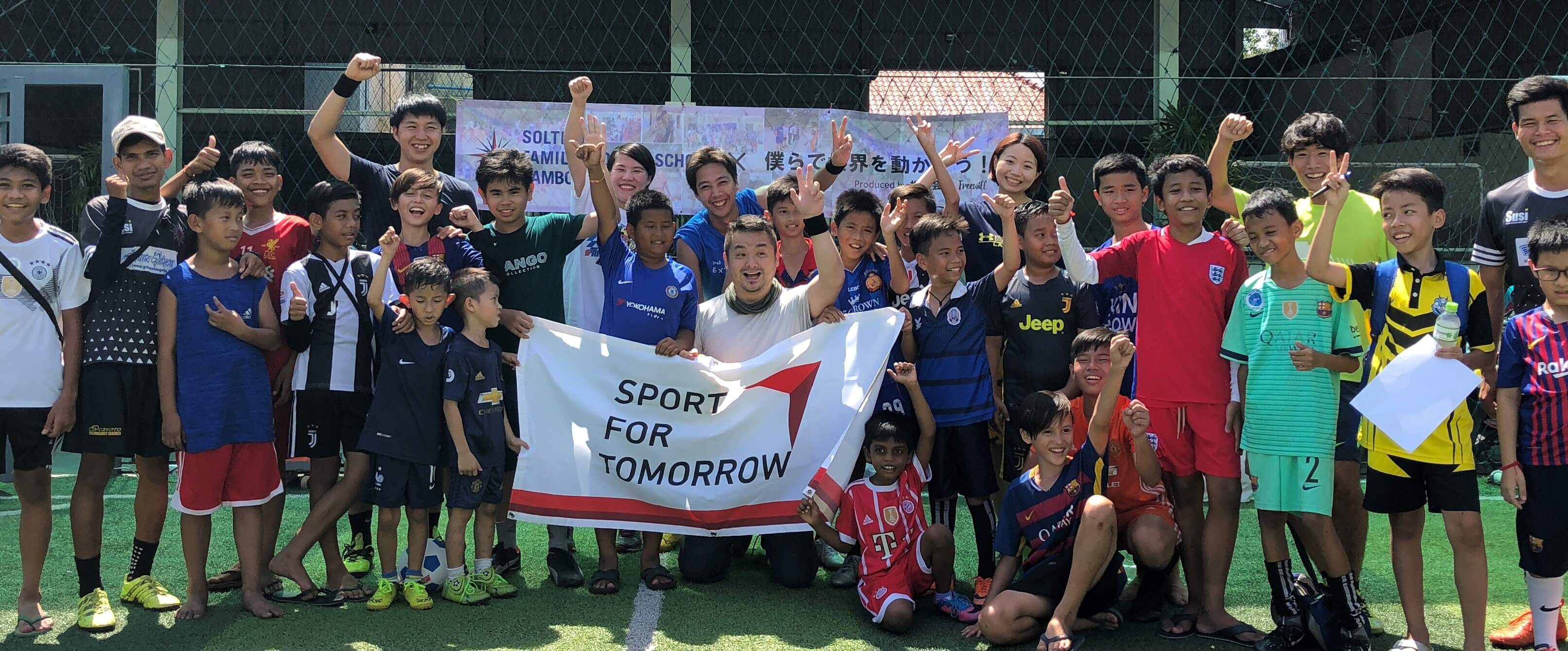
In today’s society, there are many people who pay for games, but there are few who “donate” money to real children. That is why Asaba says it is important to have real-life entertainment that can be enjoyed in the real world, such as by making a movie out of a real child who became a soccer player after having had his career supported by donations, or by creating a character of the child who received support that can actually be used in a soccer game.
“Some people may say,‘It’s not my child, so it doesn’t matter.’ But that doesn’t allow us to fulfil our responsibility to the world, living in solidarity. That’s why the key is not to create awareness, but to create entertainment. Rather than thinking that‘we need to fulfil the SDGs,’we could think that‘we do it because it is fun.’Ultimately, it took the form of crowdfunding, then reshaped to “storyfounding”. Instead of reading the news while rocking on the train during the commute to work, one could check up on how one’s donation to a ‘talent’ is developing. Later on, the story of that talent could become a non-fiction story of a comic or film. I wanted to create a service for that purpose,” said Asaba.
Not crowdfunding, but rather, “a platform where talents can receive financial support is what I wanted to create,” Asaba stated. Volunteers may not allow the same level of stability. That is why a system “guaranteeing continuity” that can be delivered to the “consumers” is the main undertaking.
Spin focuses on Transparency, Traceability and Compassion.
So, what exactly are the features of Spin?
In fact, Spin has a number of features that make it completely different from other crowdfunding services (for details: https://spin-project.org/how-to), but among those features, Asaba’s main focus is on “transparency”, “traceability” and “compassion”.
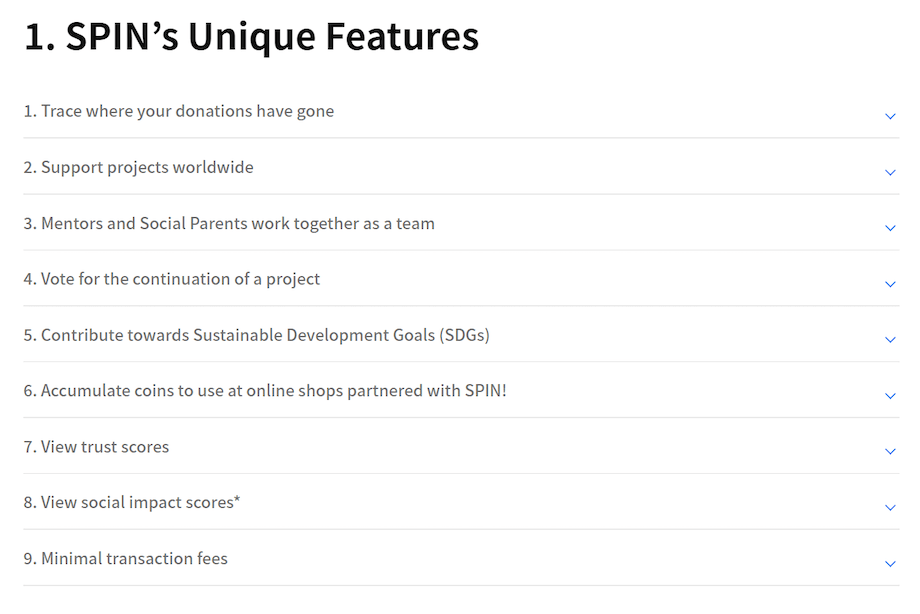
“Existing crowdfunding lacks transparency. This is true not only for Japanese crowdfunding, but also for crowdfunding around the world, where you cannot see who and how many people are involved in the project. Because of the lack of transparency, it is difficult to judge whether it is alright to donate.” Asaba explained.
The “transparency” that Asaba appeals to is by no means just about clarifying the people involved.
“When you donate money, you don’t know how the money has been used.Some people write reports, but it’s complicated to determine if they’re writing the real story or not, so it’s difficult to make a proper investment. There are also not so many attractive returns on one’s donation. In my own view, it’s much more attractive to invest in a coffee shop and become a member, for example, than to receive a free coffee voucher. I’m not an investor, but I think that in the future, what the general public will be willing to pay for is a ‘network of people guaranteeing transparency,’ ” Asaba suggested.
It is important to have a participatory system that allows you to connect with people on projects you have invested in and that your opinions are reflected. In order to ensure this, “guaranteed transparency” is the key function.
If the “from whom, for what purpose, and how much” are not disclosed, you are not inclined to donate and if the service is based on trust, it’s a wonder that the necessary information is not made public, Asaba said.
“I think transparency of people involved and money is easy to understand. The other important thing is‘transparency of the system.’I don’t mean to speak for other companies, but SPIN’s commission is 9.6%, while globally, they charge about 17%. Even if you choose the extra service of writing and video production, it’s up to 13.6%,” said Asaba.
Here is the video produced by SPIN in the project of the ongoing conservation of whale sharks.
Spin specifies a breakdown of the 9.6% fee (transaction fee: 3.6%-4.5%, system fee: 4.1%-5%, coin return: 1%), and the transaction system uses the services of a top Silicon Valley company rather than its own. Nonetheless, if the extra services are excluded, it is a surprising price.
What’s more, SPIN doesn’t have any advertising or fundraising. In fact, Asaba has stated publicly that he does not want any “advertisement on the service or fundraising for Spin.”
Asaba laughed when asked about “how to monetize.”
Indeed, how on earth do they plan to continue their services?
“We don’t think of ourselves as creating a single company with a single service. We did not intend to create a Spin Inc. from the start. If you look around the world, there are a lot of companies constituted by the idea of one service for one company where all the profits are made. However, we have a business model where the entire company can profit from four or five services, so we always think of monetization as the last thing on our mind when we think about services,” said Asaba.
One of the strengths of Freewill’s services, not just SPIN, is that it has the potential of reaching more users than any other service because it is always designed with a global perspective.
“We are able to take on the world because we don’t run our services for profit. Moreover, at the moment, we are the first in the whole world to offer “traceability”. You can track your donations, where they went, how they were spent, the progress of current projects, and even the future schedule, all with a single login system,” explained Asaba.
Spin ensures transparency and traceability by creating a single receipt displaying all the necessary information. The money is managed responsibly by the project owner who publishes a report about the project.
Finally, Asaba told us about another key word: compassion.
“We believe the concept of ‘compassion’ is important because we are not a ‘profit-driven’ service. Project owners and donators can connect through Spin when everyone has‘compassion’for each other. You can take a story normally that would not have been in your life and turn it into a page in your life,” Asaba said.
For example, a Japanese employee can learn about ethical fashion in Bangladesh, to which there may have been no former relation, through SPIN, and even get involved in the project. “It’s the ultimate form of crowdsourcing,” Asaba said gladly.
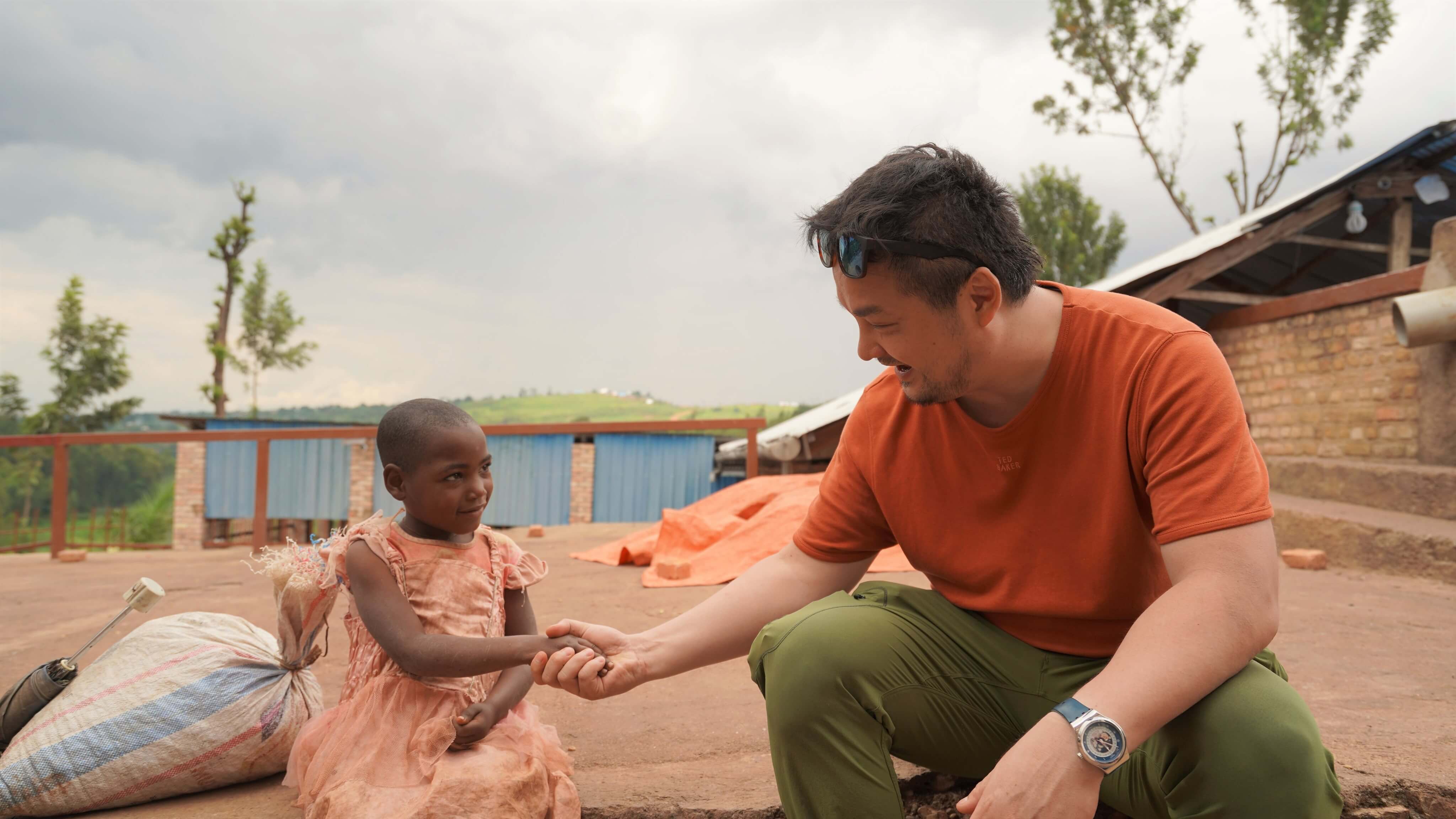
Moreover, Asaba emphasised this “compassionate” service, further calling it a “service spreading love”.
Asaba further said, “The 21st Conference of the Parties (COP21) to the United Nations Framework Convention on Climate Change (UNFCCC) discussed measures to combat global warming after 2020, and the Paris Agreement was decided upon, but when we think about energy issues, technology is an inseparable part of the equation, and the use of technology alone consumes an enormous amount of energy.”
For example, India’s population of 1.5 billion, more than 10 times the size of Japan’s, has fought with the rest of the world to bring electricity and cars to the billions of households currently without electricity. Although renewables are becoming more prevalent in India, nuclear power is still an inevitable situation when it comes to providing electricity for billions of people.
“The moment every household has a car, there will be no air left on the planet. Correcting poverty means changing the way the economy works.Without changing this, we can’t achieve the SDGs or clean up the river. The structure of producing in countries where wages are low and consuming in countries where wages are high is already collapsing. The society of the future will be guilty of just living as a consumer,” Asaba said.
That’s why “consumers need to become more aware,” Asaba complained.
“Think about why plastic bags are now paid for.”
“Instead of being in a hurry to reduce the population, we should look at what is the original appropriate number of people.”
“The fact is that this year, ironically, the year of the corona crisis, is the first year in the 70 years since after WWII, nature has had a chance to recover.”
Asaba went on talking aboutthe importance of consumers themselves becoming more aware and making their own decisions, rather than believing information that is created for a capitalist society.
“If you are at fault for living, you could introduce your own project to solve the situation. If you read the stories of various projects on SPIN and think this area/project is interesting, then you can declare yourself a concerned resident of the area and become an involved member.” said Asaba.
Eventually, Asaba, who envisions eliminating slander and media manipulation and even reducing suicides by introducing a 360-degree rating system for all articles and said that “the world he envisions is already in front of him.”
“It may be a bit spiritual, but I believe that in a world where each person lives according to his or her own conscience, rather than in a world that monitors and controls, the moral is higher and goes beyond the third dimension (material desires, sleep desires and sexual desires). In the world of the fourth and fifth dimensions, which are not dominated by the third dimension, even if the world of the tenth dimension comes to us, I believe that a ‘service spreading love’(which begins with compassion and not with an emphasis on profit) will become more important than ever before.” said Asaba.
Asaba emphasises the importance of “services that will be used across dimensions,” and says that the next phase of 3D-sensing people will move to the next phase in 2050, which is also the year that Prime Minister Yoshihide Suga announced his plan to reduce domestic greenhouse gas emissions to practically zero in his extraordinary Diet speech, and that signs will begin to emerge around 2030.
What I most want to create is a “Sustainable Eco Society.”
Many of you may already be confused by Asaba’s overly perplexing ideas, but let me tell you one last thing about the “Sustainable Eco Society” that Asaba desires the most to happen.
Perhaps you may have wondered about the “1% coin return” at the end of the 9.6% Spin fee breakdown (transaction fee: 3.6-4.5%, system fee: 4.1%-5%, coin return: 1%) that I mentioned earlier.
“This 1% is a coin (point) that is returned to all users who donate for Spin projects. In fact, this coin will lead to our primary goal of creating a Sustainable Eco Society,” said Asaba.
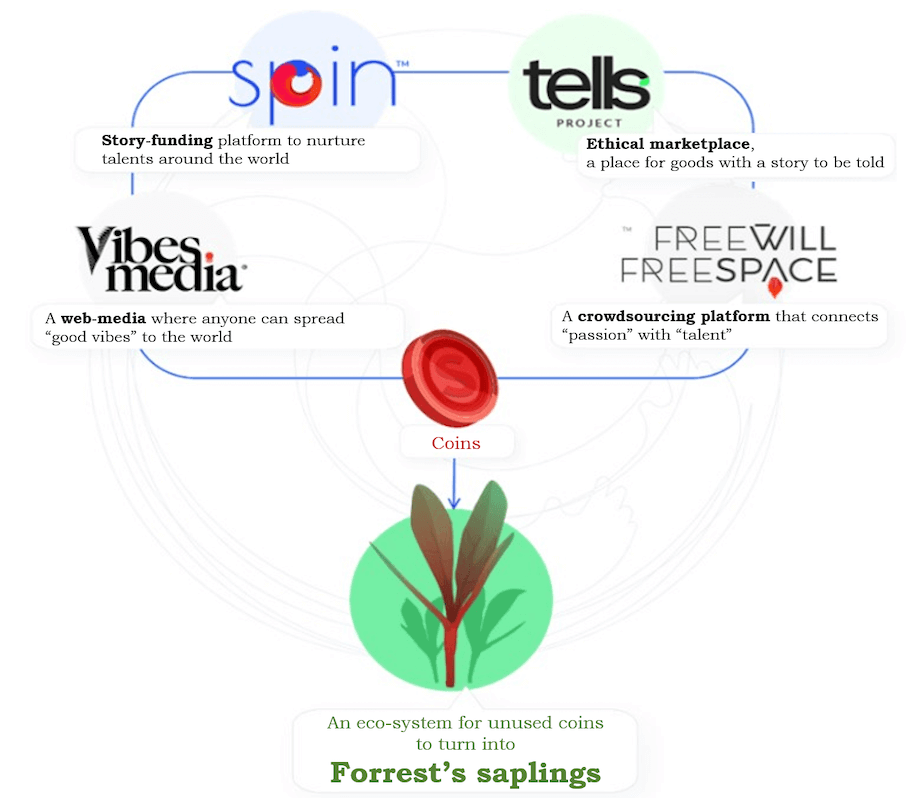
In addition to Spin, Freewill, of which Asaba is the president, has released several other services, all of which are linked to the “realisation of a Sustainable Eco Society” through a common coin.
In fact, Asaba said that he has already created a soon-to-be-released “Ethical Online Market.” Coins returned to users can be used to make purchases at the market, and the more users Spin and other services acquire, “the more seeds will be planted for trees automatically,” Asaba explained.
“Our coins are coins that lose more and more value over the course of a month. For example, if you have 100 coins in your possession right now, the next month they will be 90. Then where do those 10 coins that have lost their value go? The system automatically turns them into seedlings in the forest,” said Asaba.
While many of us have been familiar with the system of points, how many of us know what happens to our expired points?
“If I had to sum up the point system in one word, it would be that all of the expired points were returned to the company and its shareholders as a benefit. However, this is a mechanism for increasing profits and is a capitalist approach. Users are consumers and cannot be more than that. But if the government has declared zero greenhouse gas emissions, we will not be able to achieve the goal in 2050 if the consumers remain consumers. That’s why we need to become prosumers so that consumers can produce as well,” Asaba said.
Nevertheless, Asaba’s takeaway is to make it entertaining rather than an awareness program.
“If you choose our‘Ethical Online Marketplace’, you’re unconsciously participating in the SDGs just by shopping as usual. The important thing is for the business side of society to take responsibility for creating an ecosystem where consumers, whether they are aware of it or not, are transformed into prosumers (consumers engaged in production activities),” Asaba said.
“If we can increase the number of people involved in the community and make their finances more plentiful, I am confident that we can solve the world’s poverty problem,” Asaba said. How does Asaba envision the ways in which a region’s resources can be used?
“If we could put wonderful local projects in ‘Spin’and ethical products in the‘Ethical Online Market,’ we could create a system where all redirected tax payments (furusato nozei) could be paid with coins, which would allow people to give back to their hometowns and regions with fond memories. For example, if a coin is made into a token economy*1 that can be used by all 47 prefectures, the expired coins can be used for important local projects. In this way, a new fundraising mechanism could be created. NPOs, NGOs and general incorporated associations could become borderless and change the way they raise money.”
*1 Token Economy
Referring to the new economic activity created around a blockchain. Tokens (proprietary coins) generated on the blockchain are not simply used as currency, but also are circulated with a variety of functions and values attached to them.
Asaba went on, “Everything we’ve talked about today is possible in my head, and more than only in my head, it’s possible to make it happen. These ideas have already been well-received abroad, and the first UN-recommended magazine in Geneva, the‘Social Innovation Academy’, which is dedicated to social innovation, has published an article based on Asaba’s ideas, which was written by the current CDO of Freewill and a graduate of one of Japan’s top graduate schools, Met. The paper, which he co-wrote, will be published in a larger-than-usual number of pages to make it easier for people around the world to read.”
“Some people might say it’s too grandiose to follow, but my motivation is to leave behind a beautiful ocean for Japan and the world, and (though I’m not married yet) I want to take my children to swim in a plastic-free ocean someday with my family, and to leave a world where they can see the countryside and be relieved, and that’s all I want to do, to be honest. There is no doubt that Japan will be in a bad position in 2050 unless it takes on global issues with the whole of Japan. If we don’t face up to the global challenges of 2050 with the whole of Japan, Japan’s position will undoubtedly deteriorate. In order to achieve coexistence and co-prosperity with the rest of the world, I want to create a Sustainable eco Society from the local level in Japan,” Asaba said.
With a twinkle in his eye like a young boy with a toy in his hand that he has been asking for all along, Asaba speaks with absolute confidence in the service he has created from scratch.
I’m sure I’m not the only one who can’t take my eyes off of the future he is creating.

NANA TAKAYAMA
高山 奈々
Articles
